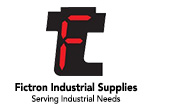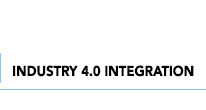Fictron Industrial Supplies Sdn Bhd
No. 7 & 7A,
Jalan Tiara, Tiara Square,
Taman Perindustrian Sime UEP,
47600 Subang Jaya,
Selangor, Malaysia.
No. 7 & 7A,
Jalan Tiara, Tiara Square,
Taman Perindustrian Sime UEP,
47600 Subang Jaya,
Selangor, Malaysia.
+603-8023 9829
+603-8023 7089
Fictron Industrial
Automation Pte Ltd
140 Paya Lebar Road, #03-01,
AZ @ Paya Lebar 409015,
Singapore.
+65 31388976
sg.sales@fictron.com
Automation Pte Ltd
140 Paya Lebar Road, #03-01,
AZ @ Paya Lebar 409015,
Singapore.
+65 31388976
sg.sales@fictron.com
THE IMPACT OF INDUSTRIAL IOT ON MANUFACTURING 4.0
14 Mar 2019


View Full Size
Digital transformation is a key component of Industry 4.0 (or the fourth industrial revolution). As a matter of fact, these new transformative technologies are already possessing a major impact on the manufacturing process, for example with self-driving logistics vehicles, predictive maintenance, data-driven quality controls, self-organizing production and much more. In the discrete manufacturing sector, which is highly competitive and price sensitive, these expert practices are being rolled out especially fast to attain optimal yields, high operational efficiencies, and cost controls.
According to a present Bsquare Maturity Study of manufacturers, 77 percent of organizations polled have some sort of IIoT solution in place. The majority of these deployments are less mature and focus on simple data forwarding, device connectivity, and some real-time dashboard monitoring. However, there are a number of manufacturers rolling out more mature solutions that deliver innovative analytics such as machine learning, cluster analysis and artificial intelligence, or that are creating completely automated, single-step actions. What was mastered from these early trail-blazing organizations? Here are some key conclusions to consider:
The Data Challenge Is Real
The next phase in factory automation is anticipated to grow these data counts tremendously. In fact, new forms of digital technology, including touch interfaces and augmented-reality (AR) systems are already popping up in the advanced factory. Considering this current and future data outlook, manufacturing executives should understand that these large data sets are far too vast for humans to read. IIoT solutions are needed to make timely, smart, data-informed decisions. With high cloud-based data analytics, machine learning, and predictive reasoning, organizations can transform rich operational data into tangible business improvements.
ROI is Not Far Away
Once accordingly reviewed and acted upon, a company’s streaming and stored data becomes a vital business asset – enabling production improvements, cost savings, and smarter resource allocation. For instance, manufacturers can use IIoT-based data analysis to achieve the following:
1. Establish condition-based maintenance schedules to reduce unplanned equipment downtime, better manage servicing costs, optimize production, and extend the useful life of equipment;
2. Use rules-based automation and remote-control access to maximize yield while also maintaining quality, prolonging equipment lifespans, and remaining compliant;
3. Automate and connect every corner of the factory floor to optimize processes and material flow for more precise planning, just-in-time manufacturing, and workplace safety;
4. Make machines more autonomous, such as automated guided vehicles (AGVs) and industrial/collaborative robots, to reduce the workload of IT, operations, and engineering staff;
5. Find the core determinants of production and workflow performance, then take action to continually improve them.
And these are not the only applications of IIoT that can significantly improve financial outcomes. A PWC survey of industrial sectors projects that 10 percent of all companies that digitally transform their factories, and 27 percent of “first movers” that do so, will simultaneously achieve a 30 percent increase in revenue.
Precise Goals Key to Success
It’s essential to note that manufacturers are not spending blindly in this latest digitally transformed world. They are instead strategic about where they make their investments in order to realize the greatest rewards.
The Bsquare Maturity Study also revealed that logistics (95 percent) – including that on the factory floor—was the most common challenge being tackled by manufacturers that are currently adopting IIoT solutions. The other two top priorities were machine health (82 percent) and operating costs (34 percent).
IIoT can have a tremendous impact on an industrial organization. The technology can be used to connect physical assets, monitor asset data, predict conditions, automate operations, optimize equipment, and more. Whatever the goal, if rolled out properly, the technology offers a strategic advantage that allows data to be more actionable. By unlocking previously unknown operational insights, businesses can increase output, manage costs, and improve productivity, which is at the core of Industry 4.0.
This article is originally posted on Tronserve.com
According to a present Bsquare Maturity Study of manufacturers, 77 percent of organizations polled have some sort of IIoT solution in place. The majority of these deployments are less mature and focus on simple data forwarding, device connectivity, and some real-time dashboard monitoring. However, there are a number of manufacturers rolling out more mature solutions that deliver innovative analytics such as machine learning, cluster analysis and artificial intelligence, or that are creating completely automated, single-step actions. What was mastered from these early trail-blazing organizations? Here are some key conclusions to consider:
The Data Challenge Is Real
The next phase in factory automation is anticipated to grow these data counts tremendously. In fact, new forms of digital technology, including touch interfaces and augmented-reality (AR) systems are already popping up in the advanced factory. Considering this current and future data outlook, manufacturing executives should understand that these large data sets are far too vast for humans to read. IIoT solutions are needed to make timely, smart, data-informed decisions. With high cloud-based data analytics, machine learning, and predictive reasoning, organizations can transform rich operational data into tangible business improvements.
ROI is Not Far Away
Once accordingly reviewed and acted upon, a company’s streaming and stored data becomes a vital business asset – enabling production improvements, cost savings, and smarter resource allocation. For instance, manufacturers can use IIoT-based data analysis to achieve the following:
1. Establish condition-based maintenance schedules to reduce unplanned equipment downtime, better manage servicing costs, optimize production, and extend the useful life of equipment;
2. Use rules-based automation and remote-control access to maximize yield while also maintaining quality, prolonging equipment lifespans, and remaining compliant;
3. Automate and connect every corner of the factory floor to optimize processes and material flow for more precise planning, just-in-time manufacturing, and workplace safety;
4. Make machines more autonomous, such as automated guided vehicles (AGVs) and industrial/collaborative robots, to reduce the workload of IT, operations, and engineering staff;
5. Find the core determinants of production and workflow performance, then take action to continually improve them.
And these are not the only applications of IIoT that can significantly improve financial outcomes. A PWC survey of industrial sectors projects that 10 percent of all companies that digitally transform their factories, and 27 percent of “first movers” that do so, will simultaneously achieve a 30 percent increase in revenue.
Precise Goals Key to Success
It’s essential to note that manufacturers are not spending blindly in this latest digitally transformed world. They are instead strategic about where they make their investments in order to realize the greatest rewards.
The Bsquare Maturity Study also revealed that logistics (95 percent) – including that on the factory floor—was the most common challenge being tackled by manufacturers that are currently adopting IIoT solutions. The other two top priorities were machine health (82 percent) and operating costs (34 percent).
IIoT can have a tremendous impact on an industrial organization. The technology can be used to connect physical assets, monitor asset data, predict conditions, automate operations, optimize equipment, and more. Whatever the goal, if rolled out properly, the technology offers a strategic advantage that allows data to be more actionable. By unlocking previously unknown operational insights, businesses can increase output, manage costs, and improve productivity, which is at the core of Industry 4.0.
This article is originally posted on Tronserve.com























